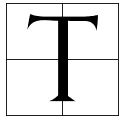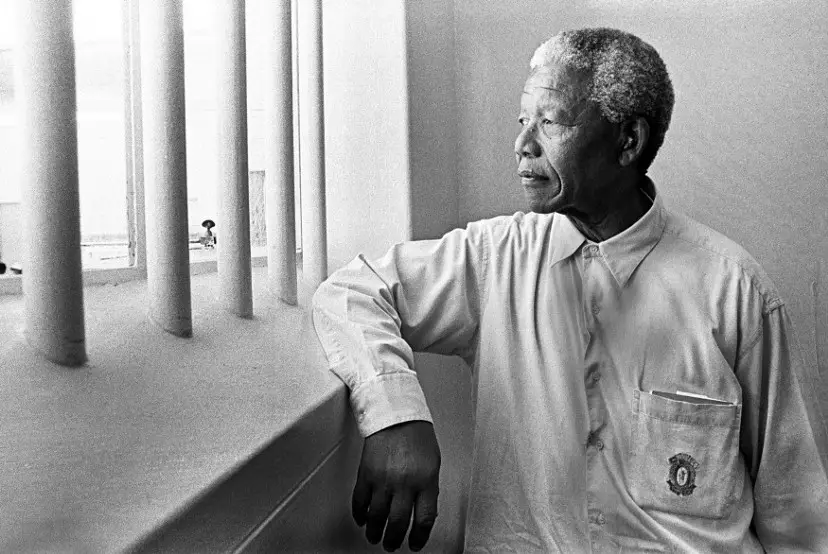 hroughout history, many impactful people have dedicated a part of their life or even made the ultimate sacrifice for a cause. But in my eyes, no person in history has fought for his people and country like Nelson Mandela. The courage showed by going against powerful people and the dedication of always staying strong to give hope to his beloved South Africans is what inspired the whole world at the end of the 20th century.
hroughout history, many impactful people have dedicated a part of their life or even made the ultimate sacrifice for a cause. But in my eyes, no person in history has fought for his people and country like Nelson Mandela. The courage showed by going against powerful people and the dedication of always staying strong to give hope to his beloved South Africans is what inspired the whole world at the end of the 20th century.
A man of justice
From a young age, Nelson Rolihlahla Mandela wanted to study law in order to fight for justice in a world where justice was not served. After finishing his studies at the University of Witwatersrand, he pursued a career as a lawyer for a short period of time in Johannesburg.
At the time (1940s), the government was run by white people only who established apartheid, which was a system that offered privileges to white people. Nelson was very upset with this apartheid as he didn’t see such a thing as being fair. He believed that those who fight for justice will always be at a disadvantage. However, no matter how much of a big disadvantage his skin color brought him, he wanted to fight for what is right and for the freedom that his people deserved.

Therefore, in 1943 he became involved in anti-colonial and African nationalist politics by joining the ANC (African National Congress). Mandela was appointed president of the ANC’s Transvaal branch which, was a small province in South Africa from 1910 to 1994. During his political missions, Mandela was arrested many times for giving speeches that tried to turn the civilians of South Africa against the government. This reached a point where he was even prosecuted for all of his actions as an anti-colonial activist in the 1956 Treason Trial, but the prosecution was unsuccessful.
Fighting for a free South Africa
Seeing that the speeches given to the public and forms of non-violent protest did not work, he secretly joined the banned SACP (South African Communist Party) as marxism influenced him to like communism. Although his ways were non-violent, he co-founded the militant Umkhonto we Sizwe in association with the SACP. In 1961, he led a sabotage campaign against the government.
His secret attempt at overthrowing the government had failed, and in 1962, when the government found out about his attempt he was sentenced to life imprisonment for conspiring to overthrow the state following the Rivonia Trial. Mandela served twenty-seven years in three different prisons (Robben Island, Pollsmoor Prison, and Victor Verster Prison). Most of his time as a prisoner was spent in Robben Island (eighteen years), where he was registered as prisoner 46664, which derived to the 466th prisoner to arrive at that prison in 1964.
“This is the island! Here you will die.” Those were the chosen words a warden used to greet Mandela and his ANC comrades upon their arrival. The biggest hardship during his years of imprisonment was in 1968 when he received a phone call saying that his mother died. Due to the strict rules of imprisonment at the time, he was not allowed to attend his mother’s funeral.
During his years of imprisonment, those who knew him and knew about the work he had done toward ending the apartheid kept fighting for freedom in his name. The ANC and SACP grew stronger as the years passed. In the early 1980s, protests in both violent and non-violent forms broke out all over South Africa. These people were not only fighting for their own freedom but for the freedom of Mandela, the man who inspired them in the first place, and who gave them hope.
Fight to the end
In 1985, the country became so unstable that the President of South Africa at the time (P.W. Botha) offered Mandela an early release from prison with the condition that he would defuse all the ongoing tension created by the public. Mandela replied, “What freedom am I being offered while the organization of the people (ANC) remains banned? Only free men can negotiate. A prisoner cannot enter into contracts.” Mandela remained in prison.

These protests were not only taking place in South Africa, they actually became a worldwide phenomenon, with people across the world protesting in different forms and ways for the freedom of Nelson Mandela.
In 1989, Botha stepped down as the leader of the National Party and was replaced by F.W. de Klerk. As the new President of South Africa, he believed apartheid was unsuitable for such a diverse country therefore he started to release many prisoners who were members of the ANC.

Following the next year, after many discussions with other members of the state, Klerk decided to free Mandela on February 11th, 1990. More than 100,000 people waited for his arrival at Cape Town’s city hall to give his famous speech through which he declared his commitment to peace and reconciliation with the white minority. In 1993, the Nobel Peace Prize was awarded jointly to Nelson Mandela and Frederik Willem de Klerk for their work for the peaceful termination of the apartheid regime, and for laying the foundations for a new democratic South Africa.
Although his fight wasn’t over, as there were still many people in the government that had a positive view of the apartheid, which meant that black people in South Africa were still segregated. When the elections of 1994 came, the ANC began campaigning with Mandela as their leader. To no surprise, Mandela won the elections and became the first black president of South Africa.
Avid Writer with invaluable knowledge of Humanity!
Upcoming historian with over 30 million views online.
“You make your own life.”





